Keir Starmer and his team are on a charm offensive to woo big business. Now with many boardrooms signed up, there is a rising clamour for policy
On a brisk morning in Canary Wharf last December, 400 business leaders mingled together with politicians at a Labour Party business conference to discuss “how we can work together to reboot our economy”. Among the guests were Tesco chairman John Allan, M&S non-exec director Justin King, and executives from across retail including Asda, Sainsbury’s, and Kingfisher. “It was a very grown-up audience,” says one attendee. “Sort of like a Christmas social for the good and the great of public affairs.”
Such events are now a regular feature on the calendar as Labour goes all out to woo big business ahead of its potential inauguration as His Majesty’s Government in the not too distant future. The event in Canary Wharf had followed Labour’s annual conference three months earlier, which lured in many of the same big names of commerce, while Keir Starmer’s appearance at the CBI conference in November stood out for its contrast to that of the incumbent prime minister. “Rishi came in and came out,” says one of those present. “Keir stayed for a bit, he talked, his people were around. It’s just a higher level of engagement.”
Labour’s charm offensive has externally been branded the ‘Prawn Cocktail Offensive 2.0’, in reference to the party’s efforts to restore trust with businesses before its victory in 1997. Starmer, shadow chancellor Rachel Reeves, and shadow business secretary Jonathan Reynolds are all on the front line, with Reeves alone claiming to have met 320 CEOs in the past year.
And as major employers, Britain’s big supermarkets are getting some special attention. At Sainsbury’s, CEO Simon Roberts and chair Martin Scicluna have met with Starmer, Reeves and Reynolds, while meetings at Tesco have included John Allan hosting Reeves at her constituency’s local supermarket.
Of course, being in opposition is very different from being in government, but Labour’s engagement and policy development is impressing many, not least Allan, who suggested that, on economic policy, Labour is “the only team on the field”.
“I am astounded by the absolutely brilliant level of engagement we’ve had from Labour,” says a senior source involved with government relations at a major supermarket, admitting they are far from a typical Labour supporter. “They’re saying the right things and, OK, it’s easier to say the right things in opposition. But it’s pretty slick at the moment. I’m giving them an A+.”
Behind the scenes, Labour’s business offensive is spearheaded by Vidhya Alakeson, a former No 10 policy advisor who was appointed director of external affairs in February last year, and Shu Fei Grindlay, head of business. “Those two in my mind are the game-changers,” says the source. “You tell them what your key issue is and they come back to you, put you in touch with the right person, who then comes in and spends two hours with your CEO. Then a few months later there’s an announcement along the lines of exactly what you were hoping for. So the machine is supremely slick. The engagement is strong.”
The standout policy that’s followed this pathway is business rates, which in September 2021, Labour vowed to scrap entirely and replace “with a new system of business taxation fit for the 21st century”. The announcement certainly pricked up the ears of major supermarkets and other land-intensive businesses who have been calling for reform for many years. But property experts warn it’s not all as great as it sounds.
“[The] proposals sound good in theory but are naïve at best,” says John Webber, head of business rates at Colliers. While he acknowledges that Labour does at least seem to be listening to businesses’ frustrations with the current system, “we are not in any way in favour of a total abolition of business rates – a tax which provides £26bn net to the exchequer. Business rates as a tax has been around for 400 years – it’s only the last 20 that it has been tinkered with so disastrously.”
He adds: “Total abolition would be naïve. Business rates is the one ‘certain’ tax. Given the economic situation in which the UK finds itself, with sterling plummeting, no politician worth their salt would suddenly get rid of the most certain of taxes.”

Patchy policies
It’s fair to say there is much more detail Labour needs to offer across the board. As well as clarity on business rates, public policy teams are patiently waiting on Labour’s plans for policies such as the apprenticeship levy, investment in food system innovation, and the environmental land management scheme (ELMS).
There is a general feeling that while Labour’s engagement is strong and it’s open to ideas, there is still little detail beyond a few straplines. Labour’s team is expanding as it looks to fill those gaps, with Muneera Lula, Labour’s head of domestic policy, reaching out to a number of businesses late last year. “I think so far there has been a lot of analysis of the problems,” says the lead on government relations at one major grocer. “What we haven’t heard yet is that second piece: what would you replace it with? How would you make it better?”
The inklings to some of those answers started to emerge in Labour’s Industrial Strategy published last September. ‘Food’ gets a reasonable four mentions in the 24-page document, including a new taskforce to assess the vulnerability of supply chains in critical sectors and “building our national resilience to future shocks, such as food supply”.
But what particularly stands out is Labour’s focus on sectors such as retail and food manufacturing. As Michael Jacobs, professor of political economy at the University of Sheffield noted in The Guardian last month: “For the first time [an industrial strategy] will focus not just on high-innovation sectors such as aerospace, but on the ‘everyday economy’, such as retail, transport, light manufacturing and services, seeking to raise productivity – and therefore wages – in the sectors in which most people work.”
It is a sign that Labour could well be a more radical government than people expect, Jacobs argues, pointing to an economic plan that is “not too far from the economic prospectus set out in Corbyn’s 2017 manifesto” and a climate and energy strategy that is “more radical than [Ed] Miliband’s in 2015”.
Food companies will be especially watchful of Labour’s promise for £28bn of green capital investment a year until 2030; plans to raise the minimum wage; and its package of workers’ rights that include a ban on zero-hours contracts and a mandatory floor on wages and working conditions in key sectors.
“It’s pretty slick at the moment. I’m giving them an A+”
Again, though, these are more signposts of priorities than enacted policies backed by detailed spending commitments. One of the main reasons for this is that Rachel Reeves is still working out how much money to give each department in the event of a Labour government, a plan that will depend in large part on the state of the public finances at the time of the election.
But Labour’s broad-brush policy approach is reminiscent of Tony Blair’s focus on crime and education as a means to cut through with both the electorate and the media. “Starmer is trying to focus on the big topics. So it’s ‘how do we sort out the health service?’, not ‘what do we do on obesity?’” says a prominent food industry lobbyist. “Obesity would be an enabler of getting the NHS into the state where it’s half-working, but it’ll only be an element in that much broader context. So we can’t expect in that context there’ll be very much detail on food and drink unless there is a major scare or scandal of the kind that horsemeat was.”
The EU dilemma
The same principal could also be applied to Labour’s post-Brexit trading strategy with the EU. While Starmer is unwilling to make a political issue of it right now, it is unavoidably a core pillar of the UK’s wider economic policy which he will have to handle one way or another if the Downing Street keys land in his hands.
With the next general election happening no later than January 2025, it will not be long before the UK’s trade deal with the EU comes up for review – also set for 2025. Labour’s plans for what it wants from any negotiations have so far been cloaked in mystery, with Starmer willing to set out his red lines – free movement and rejoining the single market or customs union – but go no further on positive actions.
Now, however, after several talks with German chancellor Olaf Scholz, Labour is reportedly pursuing a series of sector-by-sector deals that include dynamic alignment on regulatory changes between the UK and the EU, according to Andrew Marr writing in the New Statesman. Exactly which sectors this might cover is unclear but, much like Labour’s policies on obesity can be seen as part of a wider strategy on health, the sectors likely to benefit from any EU deals will be those that offer the greatest benefit to the UK’s wider economic health.
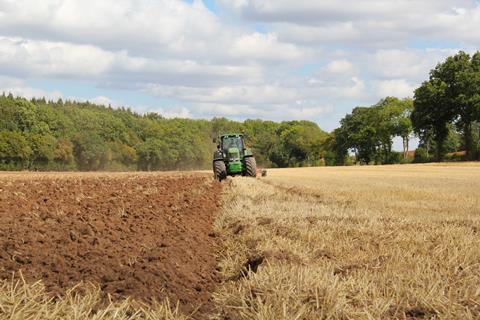
Food and drink will hope to sit towards the top of the list though. Not only does it tick Labour’s economic box as per its industrial strategy, but it’s a key component of the Northern Ireland problem, an issue that Starmer should still be expecting to be waiting in the in-tray.
On food policy, some are predicting the resurrection of Henry Dimbleby’s National Food Strategy, which has so far gained short shrift with the current Conservative government. That’s in large part due to the cost of living crisis, which has put measures such as new taxes and new environmental protections on the back foot; but as inflation starts to ease, a renewed appetite for food system change could emerge again.
“Dimbleby is the only piece of serious work that’s been done on the future of the UK food industry,” says the lobbyist. They argue that the majority of both the problems and solutions laid out in the National Food Strategy will still be relevant at the time of the next election, particularly its themes on healthy eating, the sustainability of UK farming, and the question of extending taxes on certain food and drink.
“And consequently, people will go to it. They won’t use all of it. But the chances are, the sorts of measures Henry proposes will come under very close scrutiny by any post-general election government.”
On agricultural sustainability and the future of ELMS, Labour has understandably kept quiet and waited for the government to first show its hand. But that’s not to say it hasn’t been hard at work building bridges across the farming community. NFU president Minette Batters has “a strong relationship” with Starmer, according to one senior NFU member. And despite initial doubts over Labour’s shadow Defra secretary Jim McMahon, he’s impressing many under the mentorship of his more experienced farming and agriculture shadow minister, Daniel Zeichner.
“They’ve got their shit together,” says the source. As campaigning ramps up in the next year, we should get an idea of just how together that is.
The shadow cabinet’s key figures for food
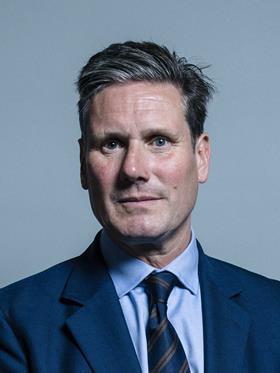
Keir Starmer
Leader of the opposition
Starmer’s transformation of Labour after the Corbyn years has given Labour a 20-point lead in the polls, and his schmoozing offensive continues later this month at the NFU conference. Yet arguably that’s the easy bit. The challenge facing the Labour leader now is whether he can turn a highly popular business engagement strategy into a cohesive policy platform that offers an attractive proposition for growth.
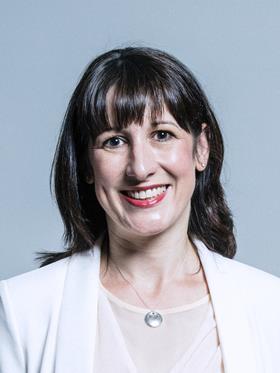
Rachel Reeves
Shadow chancellor
Reeves is the leading light of Labour’s ‘Prawn Cocktail Offensive 2.0’ to woo big business, alone claiming to have met hundreds of CEOs in the past year. A former Bank of England economist, her intelligent plans for strong growth plus fiscal responsibility have made her popular in boardrooms. However, she must still explain how Labour would fund pledges such as its business rates reform and £28bn a year in “climate investments”.

Jonathan Reynolds
Shadow business secretary
Reynolds is making a strong impression on big business. “He’s the world’s nicest man. I adore him,” says one director at a major supermarket. It must be said that Reynolds has so far promised supermarkets exactly what they want in the shape of business rates reform. But his demeanour marks a welcome contrast to certain business secretaries of the past year.

Yvette Cooper
Shadow home secretary
Cooper, one of the shadow cabinet’s most experienced operators, is tasked with developing Labour’s immigration policy, though a number of markers have already been set. Labour has said it plans to keep a points-based system and train up more workers, especially in high-skilled jobs, but has stopped short of joining the Tory pledge to keep overall migration down. Free movement from the EU has also been drawn as a red line.

Wes Streeting
Shadow health secretary
Streeting said he was “not tin-eared enough” to impose anti-obesity rules when food costs were rising back in September, but if inflation has eased by the time the next election rolls around, that could all change. Streeting’s personal encounters with the NHS have given him a clear drive for reform, and as one of the biggest drivers of ill health that places huge pressure on the health system, the UK’s obesity epidemic could move onto the agenda.

Jim McMahon
Shadow Defra secretary
McMahon slammed the “snobbishness” he faced when given the environment job because of his working-class background, in a Guardian interview last month. But McMahon is already making an impression in farming circles. While his policies so far largely focus on the right to roam and rural access, the farm lobby are pleasantly surprised by his understanding of the brief and his willingness to get about in the community.
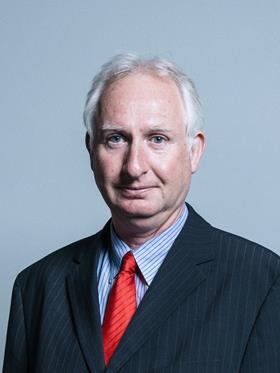
Daniel Zeichner
Shadow minister for food, farming, and fisheries
Zeichner is a junior minister but understood to be mentoring the current shadow secretary. He is often Labour’s go-to spokesperson on food issues, for example in October when he spoke positively of the UK’s National Food Strategy, telling the Commons: “Labour is committed to fixing the food system in order to meet the health and environmental challenges identified by Henry Dimbleby in his national food plan.”
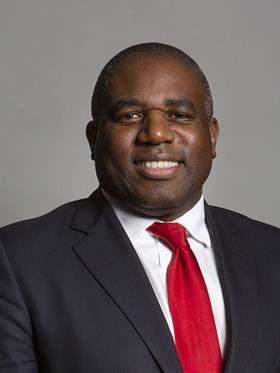
David Lammy
Shadow foreign secretary
One of Lammy’s key tasks under a Labour government would be to try and improve the UK’s trading relationship with the EU. He should get an immediate chance to do so with the current trade deal up for review in 2025, probably just a few months after the next election. Critics argue Labour is falling into the same UK-centric view that has plagued the Conservatives in talks with Brussels, although Lammy insists this is not the case.







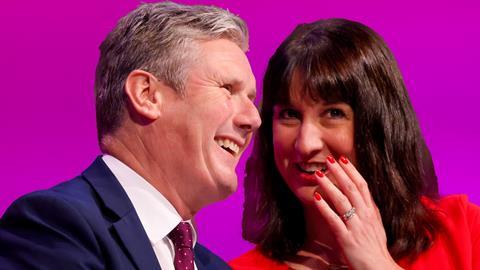
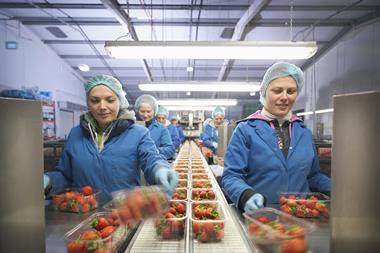
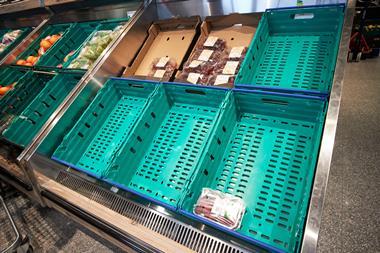
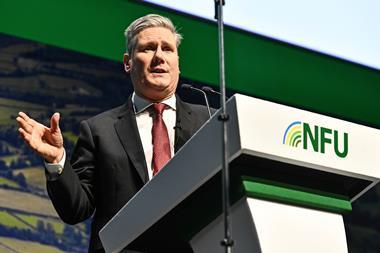
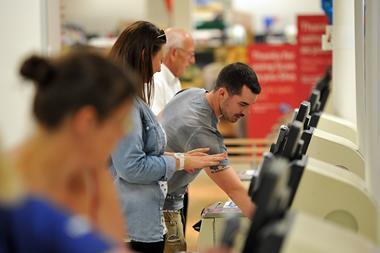

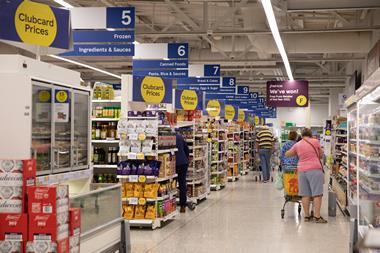






No comments yet